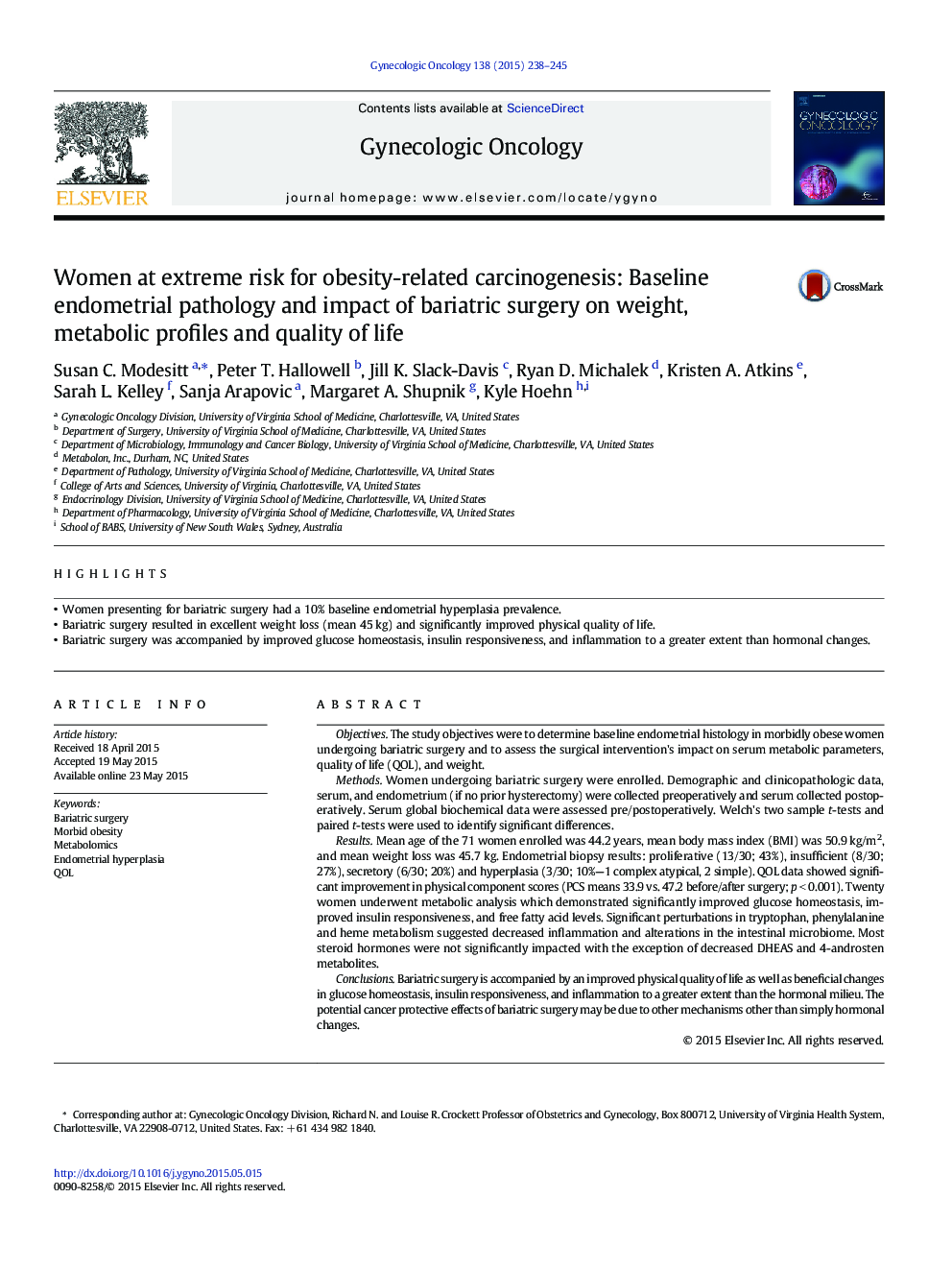| Article ID | Journal | Published Year | Pages | File Type |
|---|---|---|---|---|
| 3943141 | Gynecologic Oncology | 2015 | 8 Pages |
•Women presenting for bariatric surgery had a 10% baseline endometrial hyperplasia prevalence.•Bariatric surgery resulted in excellent weight loss (mean 45 kg) and significantly improved physical quality of life.•Bariatric surgery was accompanied by improved glucose homeostasis, insulin responsiveness, and inflammation to a greater extent than hormonal changes.
ObjectivesThe study objectives were to determine baseline endometrial histology in morbidly obese women undergoing bariatric surgery and to assess the surgical intervention's impact on serum metabolic parameters, quality of life (QOL), and weight.MethodsWomen undergoing bariatric surgery were enrolled. Demographic and clinicopathologic data, serum, and endometrium (if no prior hysterectomy) were collected preoperatively and serum collected postoperatively. Serum global biochemical data were assessed pre/postoperatively. Welch's two sample t-tests and paired t-tests were used to identify significant differences.ResultsMean age of the 71 women enrolled was 44.2 years, mean body mass index (BMI) was 50.9 kg/m2, and mean weight loss was 45.7 kg. Endometrial biopsy results: proliferative (13/30; 43%), insufficient (8/30; 27%), secretory (6/30; 20%) and hyperplasia (3/30; 10%—1 complex atypical, 2 simple). QOL data showed significant improvement in physical component scores (PCS means 33.9 vs. 47.2 before/after surgery; p < 0.001). Twenty women underwent metabolic analysis which demonstrated significantly improved glucose homeostasis, improved insulin responsiveness, and free fatty acid levels. Significant perturbations in tryptophan, phenylalanine and heme metabolism suggested decreased inflammation and alterations in the intestinal microbiome. Most steroid hormones were not significantly impacted with the exception of decreased DHEAS and 4-androsten metabolites.ConclusionsBariatric surgery is accompanied by an improved physical quality of life as well as beneficial changes in glucose homeostasis, insulin responsiveness, and inflammation to a greater extent than the hormonal milieu. The potential cancer protective effects of bariatric surgery may be due to other mechanisms other than simply hormonal changes.
